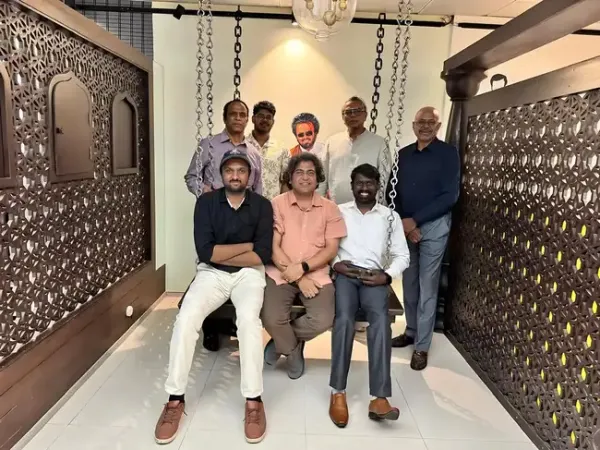IIT Madras-incubated deeptech startup Plenome Technologies has raised Rs 6.5 crore in seed funding from Indian and international investors, including Luxembourg-based Ovington Capital, UAE-based AADI, and Manish Gandhi, who has invested in ePlane and CynLr to GoStop, LegalKart, and Fermbox.
Founded by mechanical engineering professor Prabhu Rajagopal, the startup develops blockchain and AI-powered applications for secure data transfer in sectors such as healthcare and voting.
Plenome’s solutions include ‘BlockVote,’ a blockchain-based remote voting platform, which was deployed in IIT Madras student elections, and ‘OrganEase,’ a digital tool to manage organ donation databases, currently undergoing trial implementation in one of the southern Indian states. It is also piloting ‘Ashwin,’ an AI-powered voice-enabled data capture platform in dental healthcare, with plans to expand to eye care, cosmetic, and fertility domains.
Rajagopal said the startup’s mission is to address the challenge of developing digital applications that can protect the privacy of users and security of records while ensuring interoperability across organisations, geographies and smooth operations at scale.
“Our work on remote elections is very exciting, offering the possibility of voting through mobile devices from any location. We hope to grow organically with impact in the coming years,” the professor added.
The startup’s core offering is built on a patent-backed distributed ledger technology (DLT) framework that allows secure, privacy-preserving data management across organisations and geographies.
Plenome is also developing what it claims could be the world’s first distributed AI protocol for structured data analysis in healthcare and e-governance. The funding will be used to scale existing pilots, accelerate product development, and expand into international markets.
One of the investors, Marco Palacino of Ovington Capital Partners, said, “The partnership brings strategic alignment, market access, and capital support to accelerate Plenome’s mission. With a focus on breakthrough innovation and global impact, Ovington is well-positioned to support Plenome’s vision for the future of digital health and e-governance.”
Founded by mechanical engineering professor Prabhu Rajagopal, the startup develops blockchain and AI-powered applications for secure data transfer in sectors such as healthcare and voting.
Plenome’s solutions include ‘BlockVote,’ a blockchain-based remote voting platform, which was deployed in IIT Madras student elections, and ‘OrganEase,’ a digital tool to manage organ donation databases, currently undergoing trial implementation in one of the southern Indian states. It is also piloting ‘Ashwin,’ an AI-powered voice-enabled data capture platform in dental healthcare, with plans to expand to eye care, cosmetic, and fertility domains.
Rajagopal said the startup’s mission is to address the challenge of developing digital applications that can protect the privacy of users and security of records while ensuring interoperability across organisations, geographies and smooth operations at scale.
“Our work on remote elections is very exciting, offering the possibility of voting through mobile devices from any location. We hope to grow organically with impact in the coming years,” the professor added.
The startup’s core offering is built on a patent-backed distributed ledger technology (DLT) framework that allows secure, privacy-preserving data management across organisations and geographies.
Plenome is also developing what it claims could be the world’s first distributed AI protocol for structured data analysis in healthcare and e-governance. The funding will be used to scale existing pilots, accelerate product development, and expand into international markets.
One of the investors, Marco Palacino of Ovington Capital Partners, said, “The partnership brings strategic alignment, market access, and capital support to accelerate Plenome’s mission. With a focus on breakthrough innovation and global impact, Ovington is well-positioned to support Plenome’s vision for the future of digital health and e-governance.”








